As of 3:39 PM on Wednesday, June 25, 2025, a significant political shift appears to be underway in New York City, with Zohran Mamdani, a 33-year-old Democratic Socialist and state assemblyman, projected to secure victory in the Democratic primary for mayor.
Preliminary results, based on 93 percent of first-choice votes tallied, show Mamdani leading with 43.5 percent, surpassing former Governor Andrew Cuomo, who conceded defeat with 36.3 percent.
This outcome, pending final confirmation through ranked-choice voting by July 1, marks a historic moment, positioning Mamdani as a potential first Muslim, Asian, and millennial mayor of the city.
This article explores the factors contributing to his rise, the broader implications for the Democratic Party, and the contentious reactions that have accompanied this electoral development.
Mamdani’s ascent from relative obscurity to frontrunner status reflects a remarkable campaign that capitalized on grassroots momentum and progressive ideals.
Born in Kampala, Uganda, to Indian parents, Mamdani immigrated to New York City at age seven, later becoming a naturalized citizen in 2018. His political career began in the New York State Assembly, representing Queens’ 36th District since 2021, where he focused on housing reform, transportation, and energy initiatives.
His mayoral candidacy, announced in 2024, gained traction with a platform promising free city buses, universal childcare, a rent freeze for stabilized units, and city-owned grocery stores, funded by higher taxes on the wealthy.
Endorsements from prominent progressives like Bernie Sanders and Alexandria Ocasio-Cortez bolstered his appeal, particularly among younger voters and disenfranchised communities.
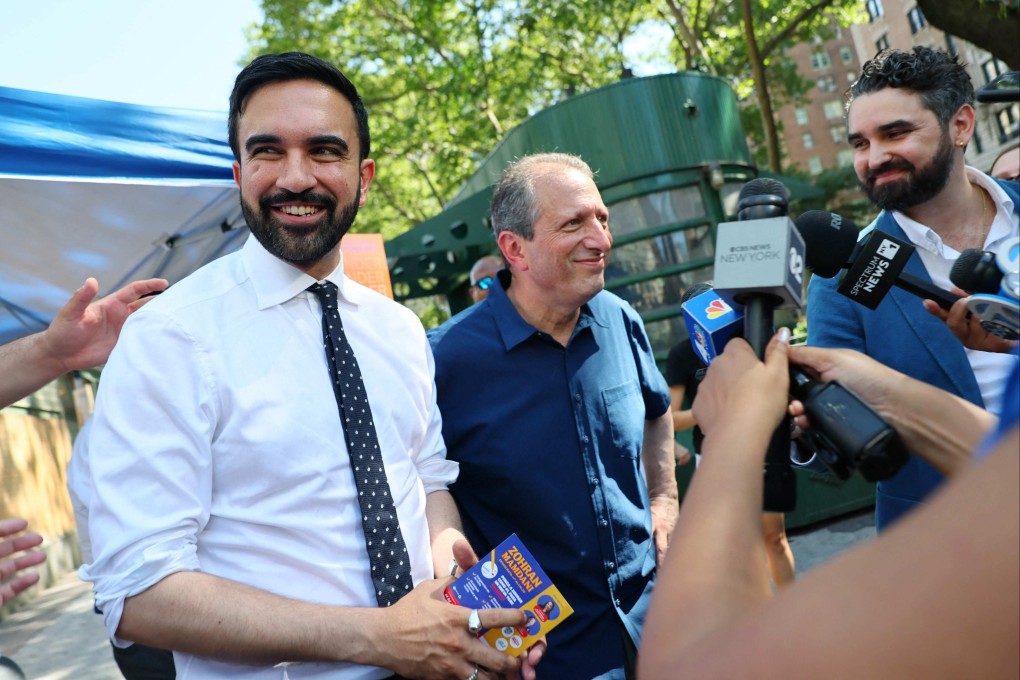
The primary election, held on June 24, 2025, saw an unprecedented turnout of over 980,000 voters, the highest since 1989, signaling a reshaped electorate.
Mamdani’s success hinged on mobilizing diverse coalitions, including South Asian and Muslim voters in Queens, as well as white, college-educated progressives in Brooklyn.
His campaign’s extensive canvassing, supported by 50,000 volunteers who knocked on a million doors, and a sophisticated social media strategy featuring viral videos, contrasted sharply with Cuomo’s more traditional, establishment-backed approach.
This groundswell of support underscores a generational shift, with Mamdani leading 2:1 among voters under 50, challenging the dominance of older, moderate figures like Cuomo.
Cuomo’s concession speech acknowledged Mamdani’s effective campaign, praising his ability to inspire young voters. The former governor, who resigned in 2021 amid sexual harassment allegations, had relied on his name recognition, union endorsements, and a $25 million independent expenditure campaign to reclaim political relevance.
However, his low-profile strategy and nostalgia-driven messaging failed to counter Mamdani’s momentum, particularly as turnout surged in areas traditionally overlooked by the Democratic machine.
This defeat raises questions about the viability of establishment candidates in an era where grassroots energy and progressive policies resonate more strongly with urban electorates.
The historical context of this election adds depth to its significance. New York City, still bearing the scars of the September 11, 2001, attacks perpetrated by al-Qaeda, a group associated with a radical interpretation of Islam, has a complex relationship with its Muslim population, estimated at over 600,000.

Mamdani’s Muslim identity, combined with his socialist label, has sparked debate about whether his projected win reflects a desensitization to past traumas or a deliberate embrace of diversity.
His campaign emphasized unity, with Mamdani declaring his intent to serve all New Yorkers, yet critics argue that his victory overlooks the sensitivities of 9/11 victims’ families, a sentiment amplified on social media platforms.
Mamdani’s policy proposals, while ambitious, face practical challenges. His plan to freeze rents for nearly one million stabilized tenants and eliminate bus fares requires state-level approval, which Governor Kathy Hochul has already resisted, citing fiscal constraints and potential outmigration of wealthy residents.
The city’s budget, strained by post-pandemic recovery and threats of federal funding cuts, limits Mamdani’s ability to unilaterally implement his vision.
His legislative record, marked by only three bills becoming law despite sponsoring 20, suggests a reliance on symbolic gestures over tangible achievements, a point Cuomo and others highlighted during the campaign.
Public reaction has been polarized, mirroring national political divides. Supporters celebrate Mamdani’s win as a triumph for progressive ideals and representation, with figures like Saman Waquad of the Muslim Democratic Club of New York hailing it as a historic moment for immigrants and minorities.
Critics, however, express alarm, with some conservative voices labeling him a radical whose policies threaten public safety and economic stability. Posts on social media have ranged from enthusiastic endorsements to hyperbolic warnings about Sharia law and open borders, reflecting a broader cultural anxiety about his identity and ideology. This sentiment, while inconclusive, underscores the emotional intensity surrounding his candidacy.
The Democratic Party’s internal dynamics are also at play. Mamdani’s rise challenges the centrist wing, exemplified by Cuomo and incumbent Mayor Eric Adams, who faces his own scandals and will run as an independent in November.

The primary’s outcome suggests a rejection of the party’s recent moderation efforts following the 2024 losses that returned Donald Trump to the presidency.
Nationally, this result could embolden progressive candidates, offering a blueprint for mobilizing young and minority voters in other urban centers. Yet, it also exposes vulnerabilities, as Mamdani’s inexperience and bold platform may alienate moderates in the general election.
International observers view this development with interest, given New York’s global stature. In a city with one of the largest Jewish populations outside Israel, Mamdani’s outspoken views on Palestine have drawn scrutiny, particularly his reluctance to denounce the slogan “globalize the intifada.”
This stance, while framed as a call for equality, has fueled accusations of antisemitism from Jewish leaders and pro-Israel groups, complicating his diplomatic outreach if elected.
The Trump administration’s influence, including its decision to drop charges against Adams, adds another layer, potentially shaping the general election’s narrative.
The ranked-choice voting system, which allows voters to rank up to five candidates, ensures that final results will reflect second and third preferences, potentially narrowing Mamdani’s lead.
Cross-endorsements, such as Brad Lander’s support for Mamdani, could bolster his tally, but the process’s delay until July 1 leaves room for uncertainty.
Historical precedents, like the 2021 primary won by Adams, suggest that early leads can hold, yet the unprecedented turnout and Mamdani’s coalition-building introduce variables that defy easy prediction.
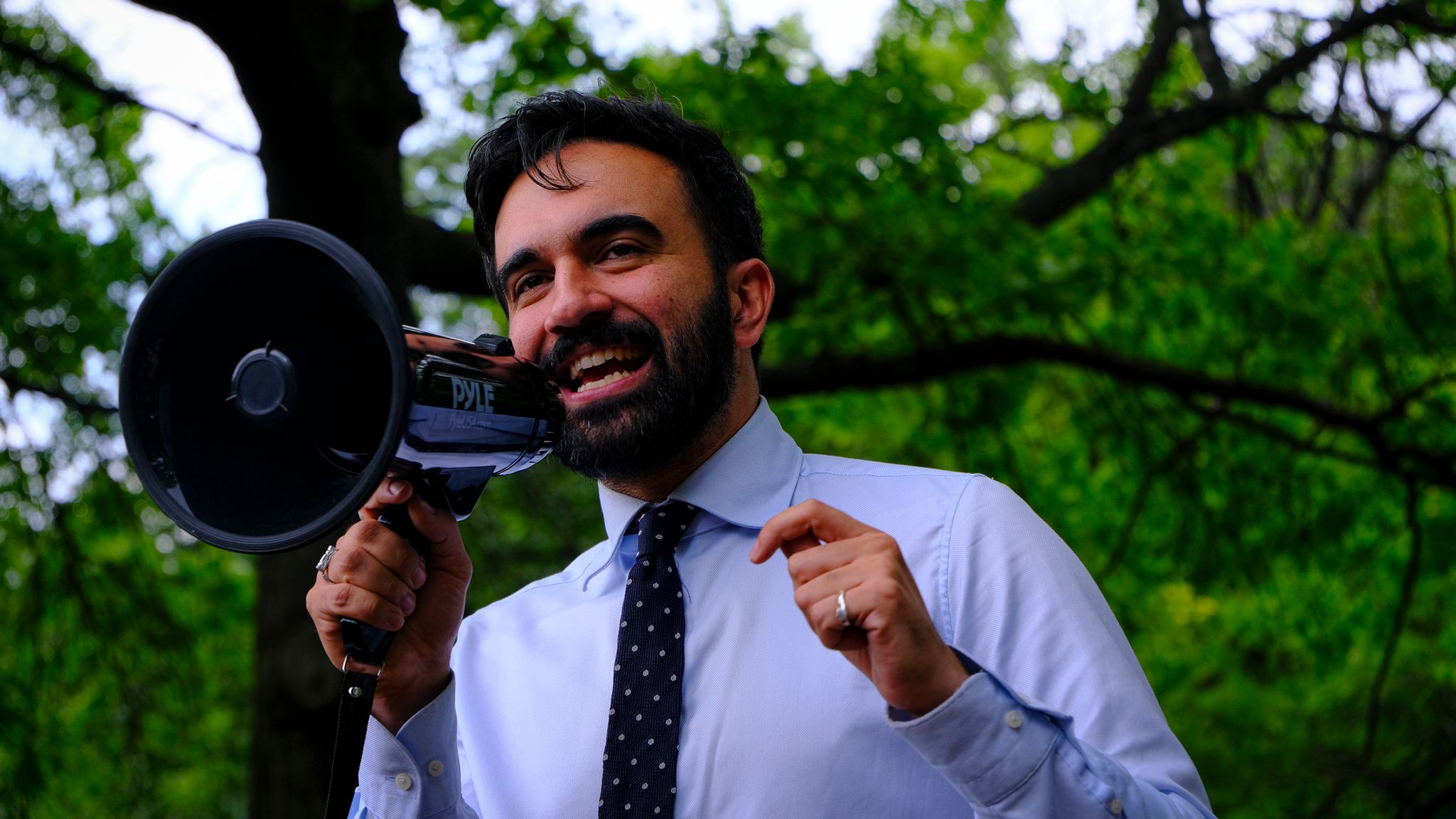
Economic considerations further complicate Mamdani’s prospective tenure. New York’s housing crisis, with one in four residents living in poverty, drives his agenda, yet his tax hike proposals face resistance from business leaders who warn of an exodus to lower-tax states like Florida.
The city’s slowest buses and high childcare costs underscore the need for reform, but funding mechanisms remain unclear, relying on a state legislature where Democrats hold a slim majority. This tension between idealism and pragmatism will test Mamdani’s governance capacity if he advances to the general election.
The November contest promises volatility, with Adams and potentially Cuomo running as independents in a city where Democrats outnumber Republicans by a wide margin.
Mamdani’s ability to unify his diverse base while addressing moderate concerns will determine his success. His campaign’s emphasis on affordability resonates with working-class voters, yet his socialist label and foreign-born background may invite scrutiny, particularly under a Trump administration focused on immigration and security.
In assessing Mamdani’s projected victory, it reflects more than a personal triumph; it signals a transformative moment for New York City and the Democratic Party.
The city’s history of resilience, from rebuilding after 9/11 to embracing multicultural leadership, supports this shift, though it also invites reflection on how past traumas inform present choices.
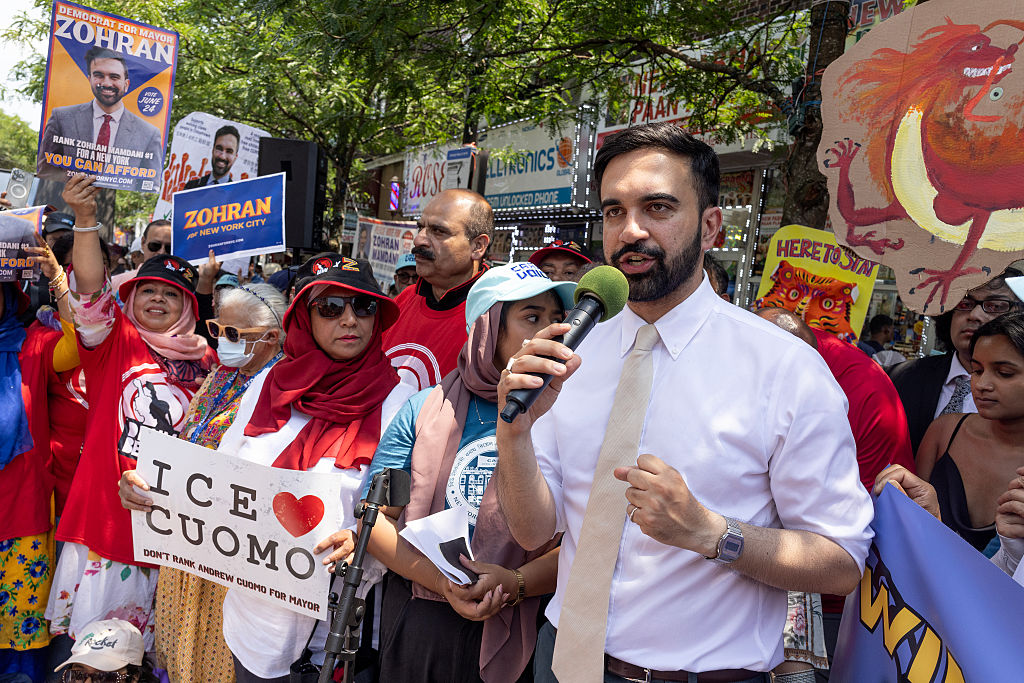
Whether Mamdani’s win heralds a progressive renaissance or exposes electoral overreach depends on his next steps. As the ranked-choice process unfolds and the general election looms, the narrative of this primary will continue to evolve, offering a lens into the future of urban politics in America.
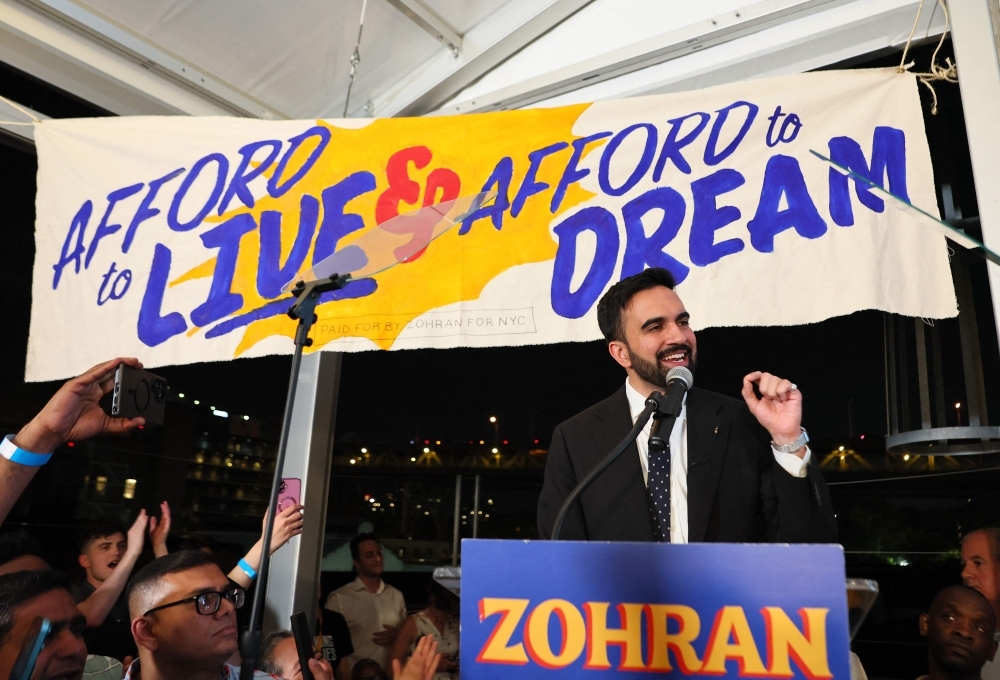
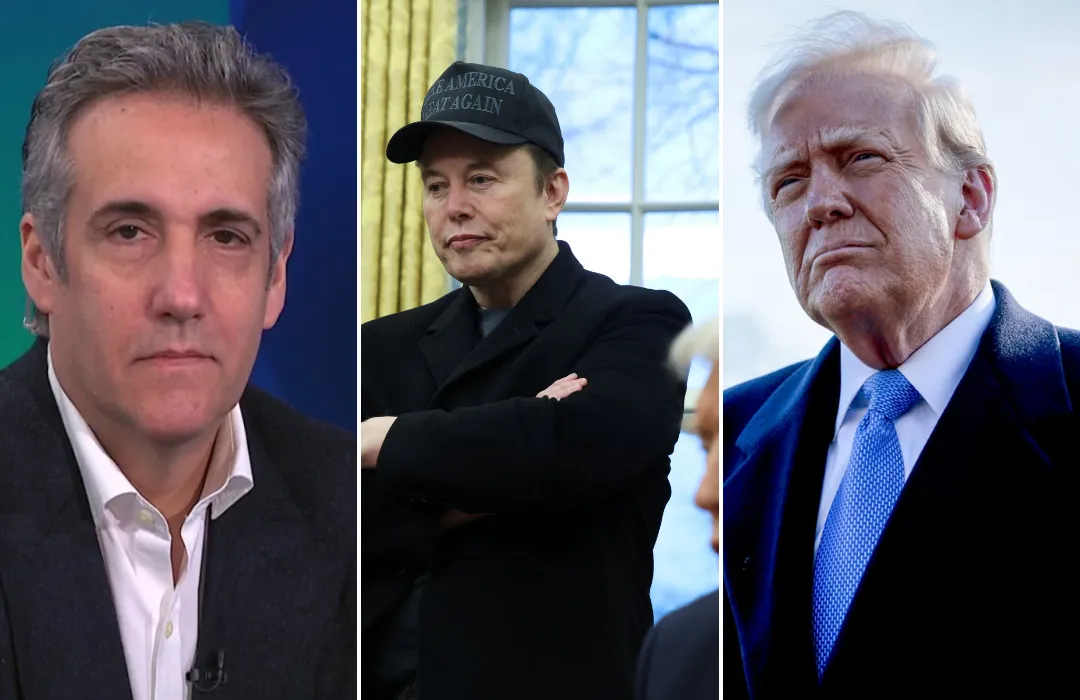


-1750222676-q80.webp)